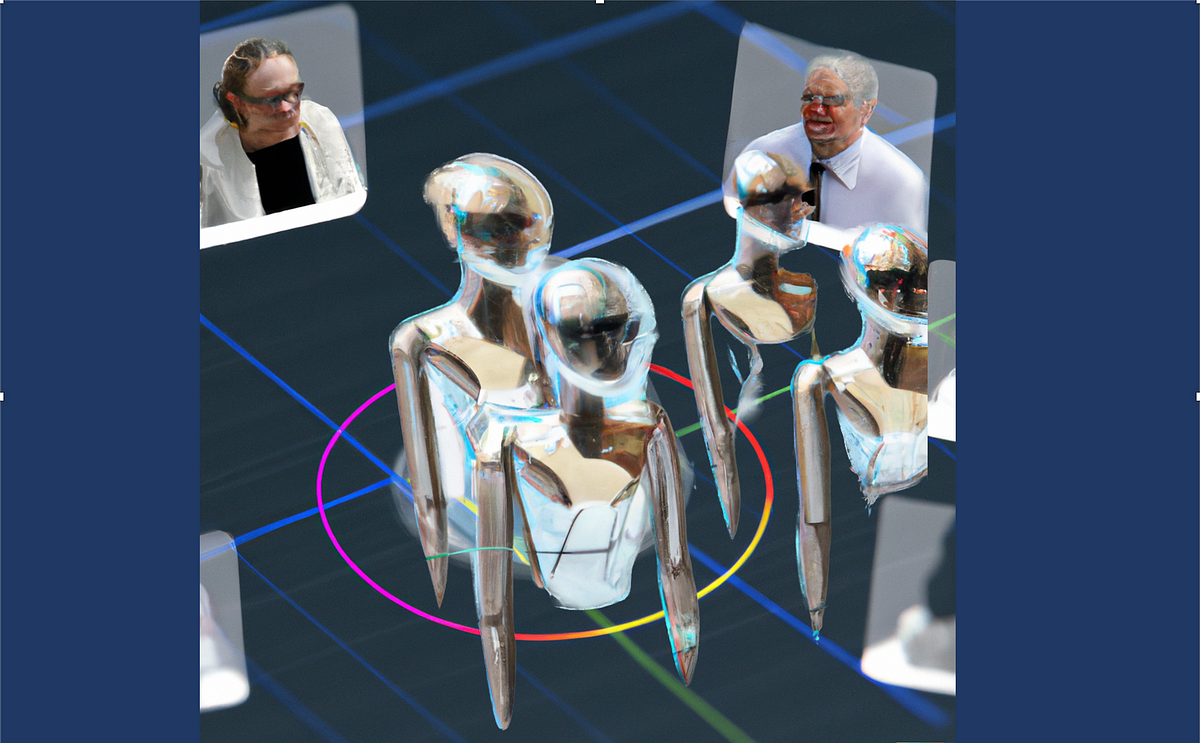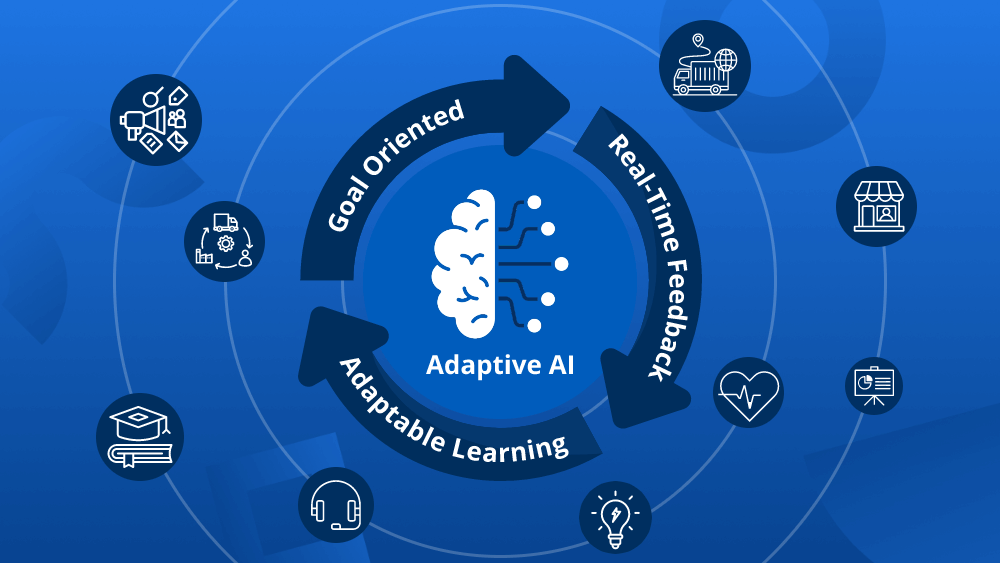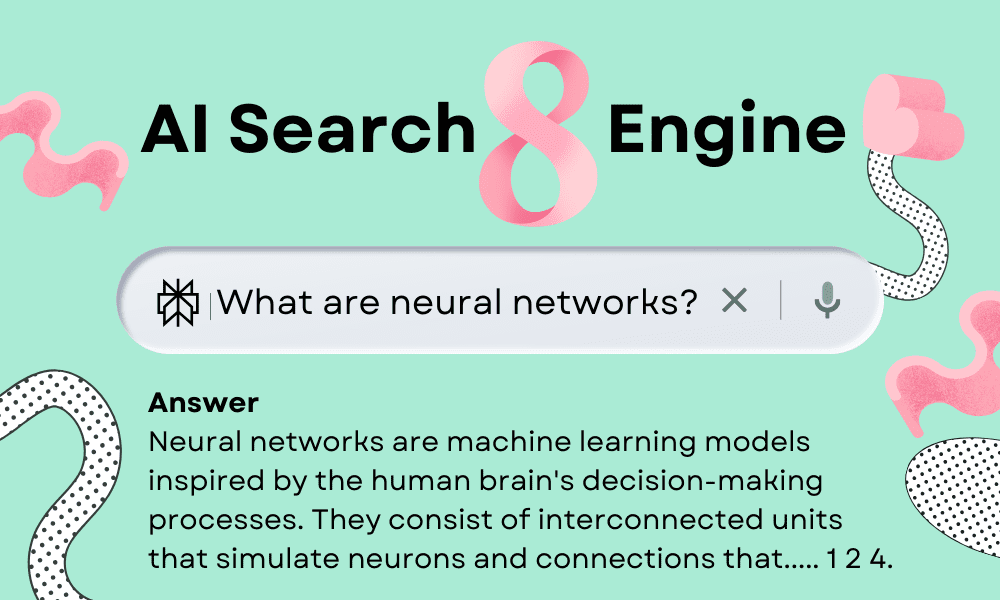
Image by Author
The digital landscape is in a state of constant flux, and search engines are no exception. Nowadays, search engines have evolved beyond just providing links to web pages. They are now designed to provide a range of features such as summarization, image generation, interactive research mode, and question-answering chatbots. This has made researching, learning, and discovering things on the internet much easier.
Although Google has been the dominant search engine for a long time, the emergence of artificial intelligence (AI) has paved the way for alternative search engines that offer unique features and advantages.
In this blog, we will learn about the top 8 AI-powered search engines that are worth considering as alternatives to Google, each bringing its own unique search intelligence to the table.
Perplexity AI is a search engine that uses artificial intelligence to provide users with more than just basic links to the websites.
Its main features include:
- Answering questions: It can answer a wide range of questions, from simple facts to complex queries, using up-to-date sources. It also allows users to generate code, summarize articles, or write emails.
- Exploring topics in depth: Perplexity’s Copilot feature guides users through a topic, enabling them to learn more and explore new areas of interest.
- Organizing your library: Users can organize their search results in “Collections” by project or topic.
- Interacting with your data: Perplexity allows users to ask questions about their files and search the web, all within the platform. This provides a complete project view in one space.
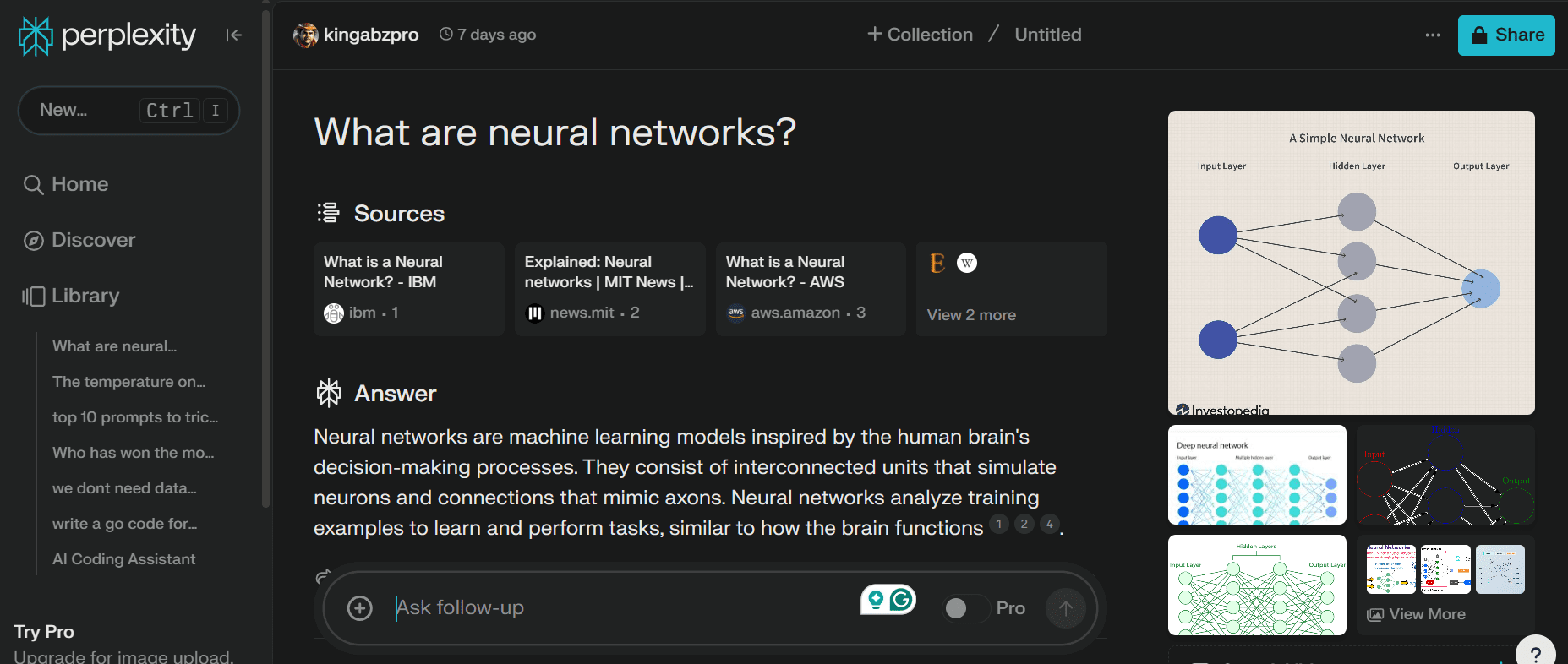
The Pro version of Perplexity AI offers a more conversational search experience. It engages with users, asking for details and preferences to deliver more precise results. It also summarizes the most relevant findings and pulls information from a diverse range of sources.
Microsoft Bing has received major upgrades since the launch of GPT-3.5. It is now a fully functional GenAI search engine that uses large language models such as GPT-4, Vision models, and Image generation models to provide a new and improved web search experience. You can now search for specific answers and receive a summary of the results. Additionally, you can interact with the AI chatbot to ask follow-up questions and even chat with your documents, integrate ChatGPT plugins, and design graphics all within the Bing platform.
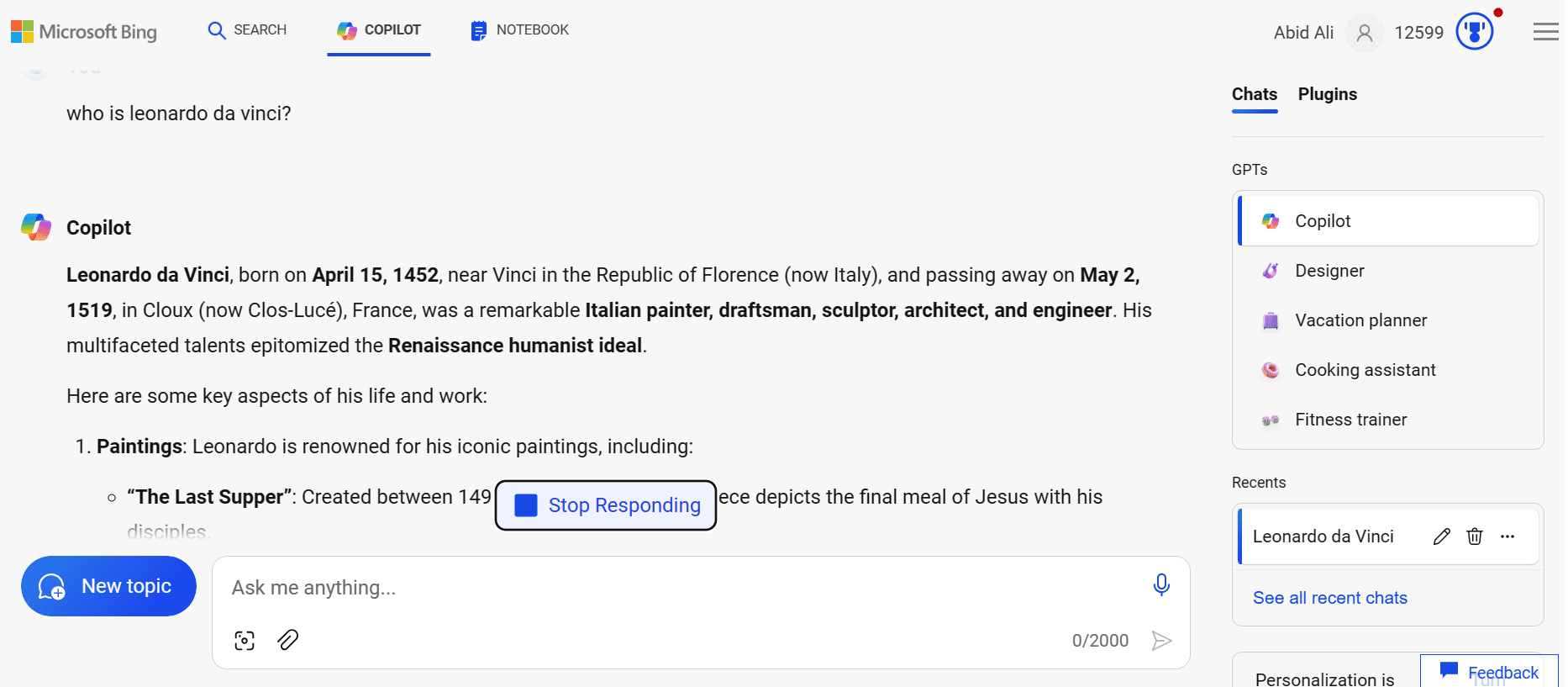
Komo AI is an advanced AI-powered search tool designed to deliver a fast, private, and accurate ad-free search experience. Unlike ChatGPT, Komo AI offers links to videos, images, and websites to facilitate detailed research. It is a powerful AI chatbot that has been trained on a diverse range of data sources, including public datasets, web crawls, human labels, and generated data, making it a robust and efficient search tool.
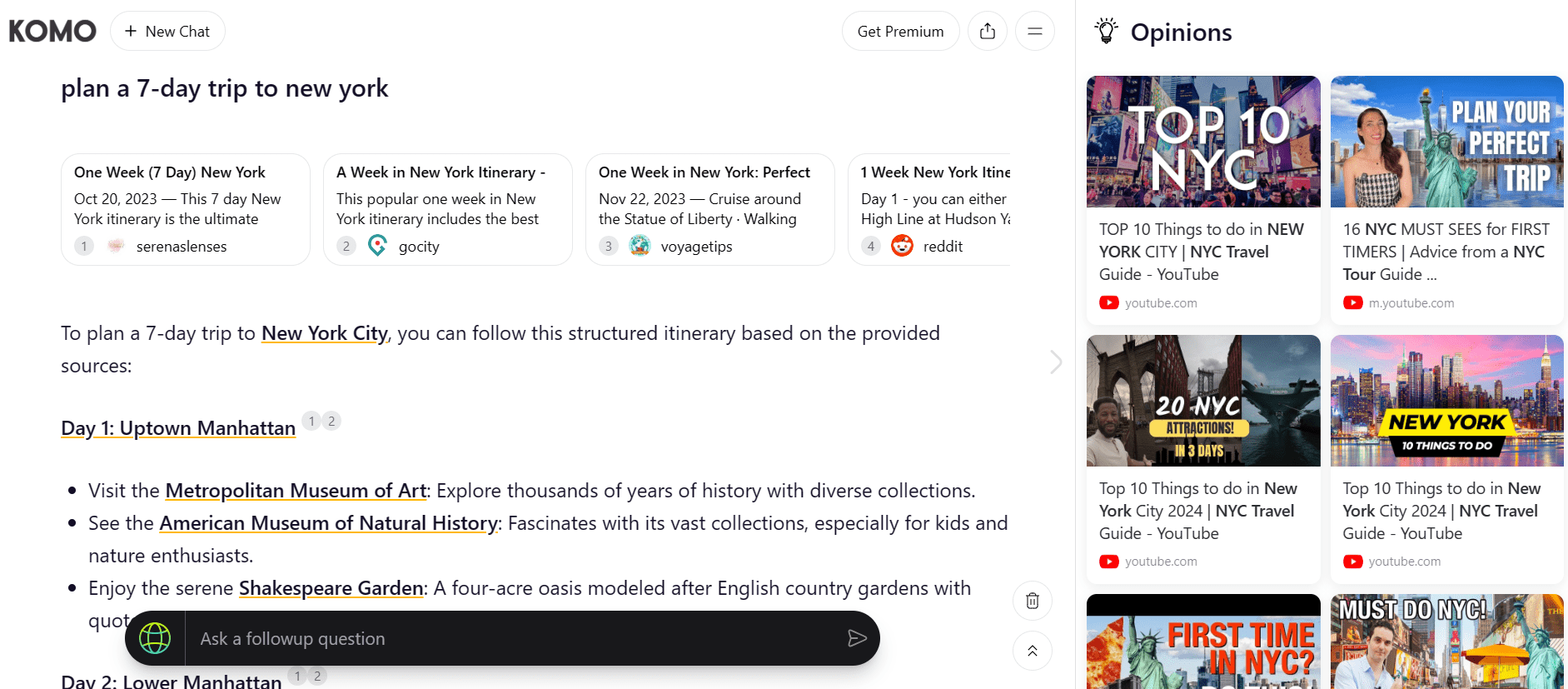
The best feature of Komo AI is its simplicity. On the welcome page, you only see a search bar, and even after performing a search, you receive minimal and relevant results instead of the entire page filled with content.
Exa AI is an advanced search engine that goes beyond traditional keyword-based searches by understanding the meaning behind queries. Formerly known as Metaphor, Exa allows LLMs to search using natural language and receive a list of relevant web pages from their neural database. Moreover, Exa AI is designed for AI applications, offering AI chat conversation services and an API for web search. You can find Python, Go, and JavaScript SDKs on the documentation page.
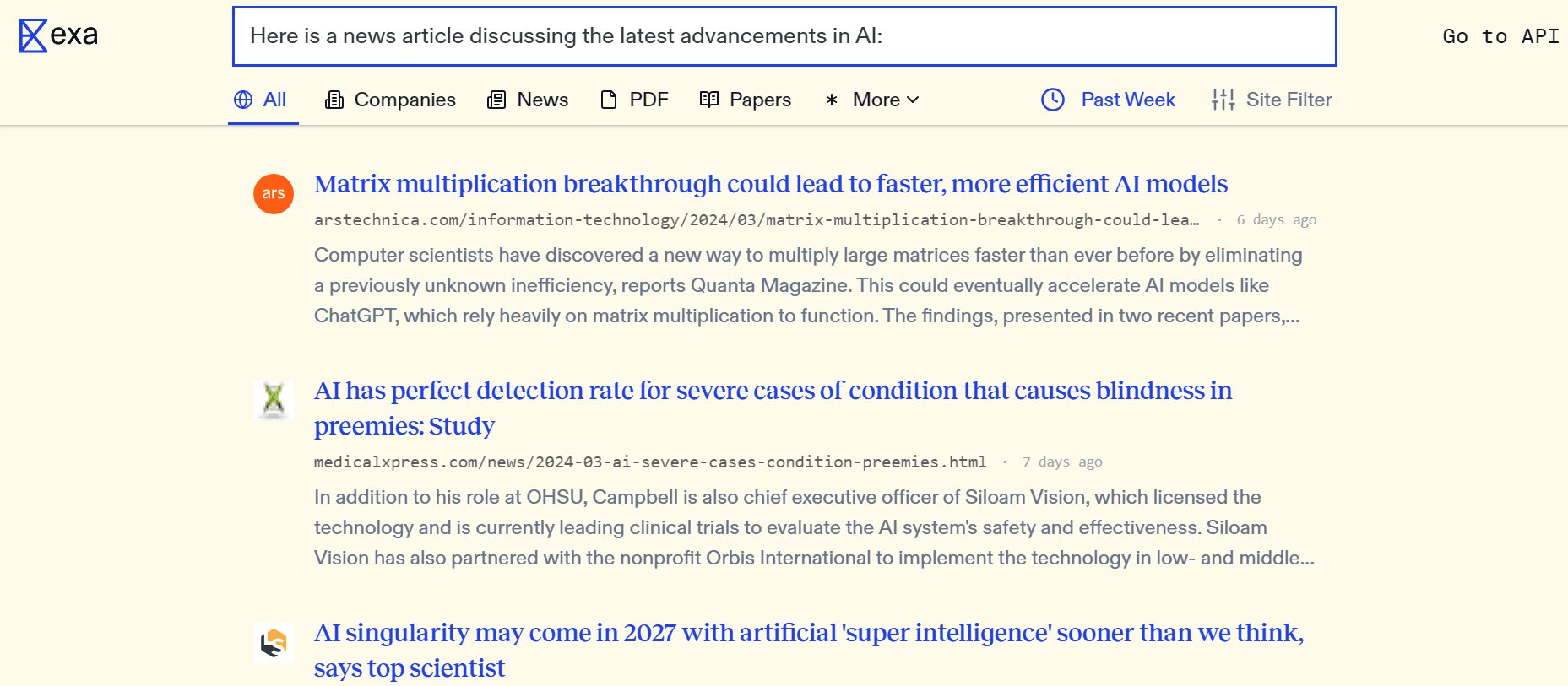
You.com is a ChatGPT style AI search engine that focuses on providing personalized answers and experiences to users. It combines natural language processing, deep learning, and knowledge graph technologies to understand user queries and deliver accurate results.
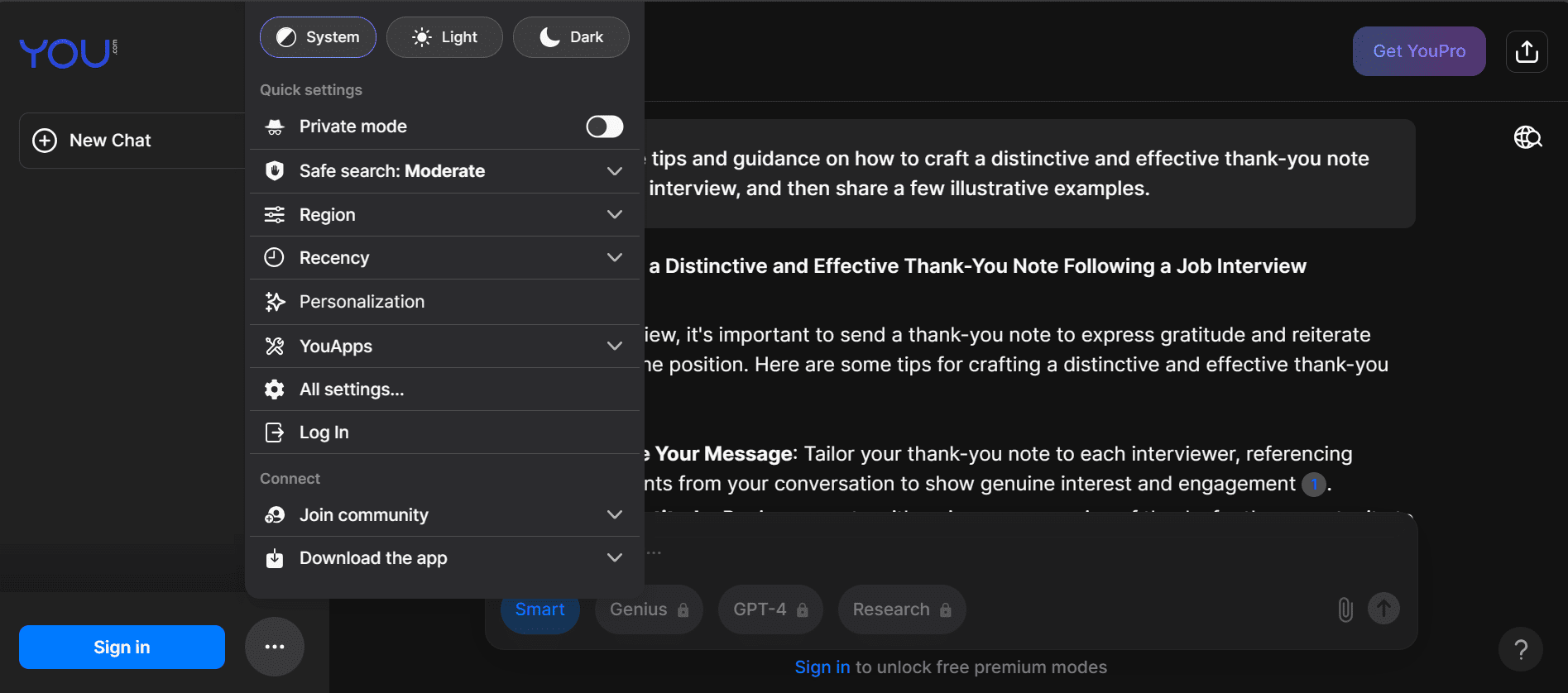
With You.com, you have access to advanced LLMs, private mode, regional selection, and powerful tools such as content and image generators, and image enhancers. However, the user interface may be difficult to navigate.
Yep is a search engine that provides a fast, private, and ad-free search experience. It values user privacy and content creators’ interests. Yep focuses on search quality by using content signals, link signals, and natural language processing to provide users with relevant and accurate search results.
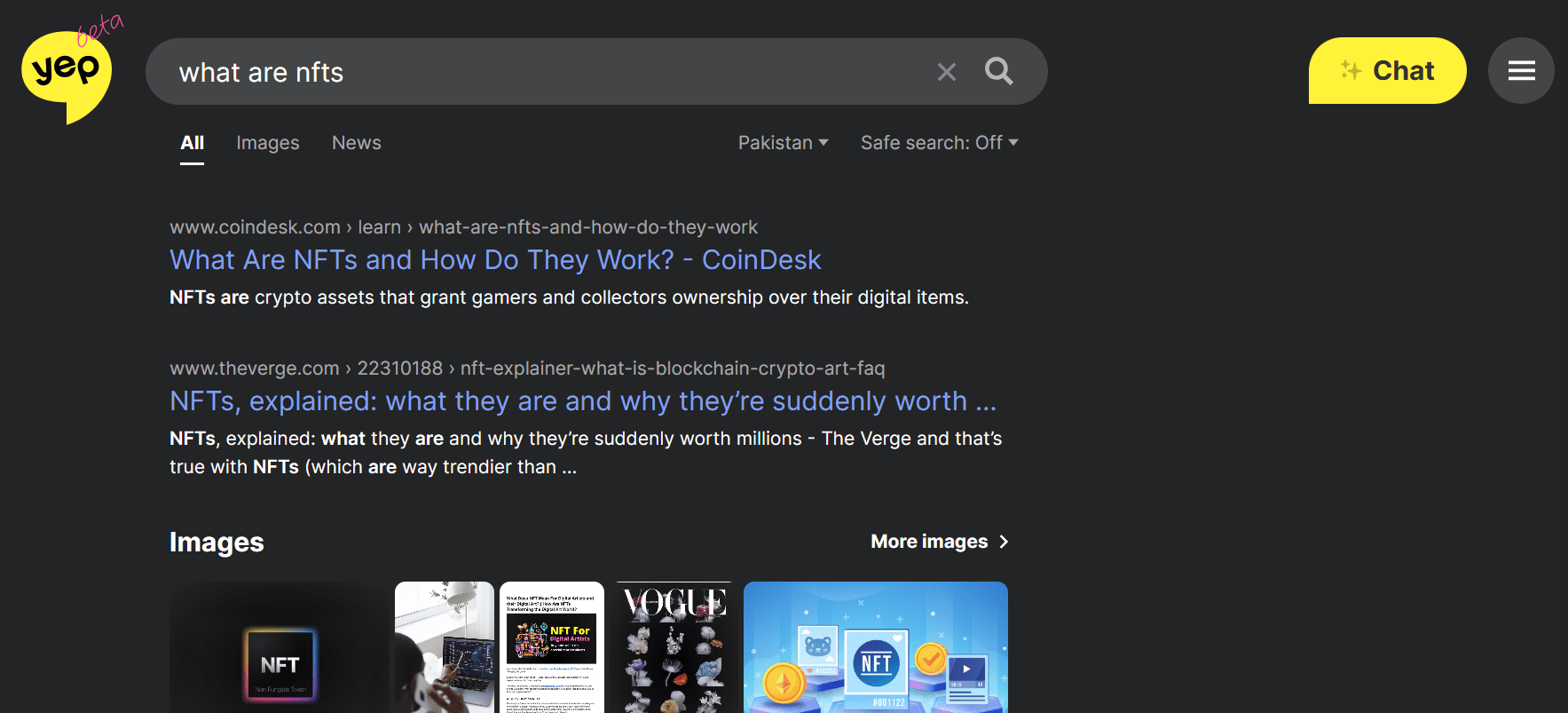
It now offers an AI chatbot feature similar to Bing. You can ask follow-up questions and receive fast and accurate results. It is simple and provides relevant results for your query.
Brave search engine is a powerful tool that uses advanced AI techniques to provide an enhanced search experience for users.
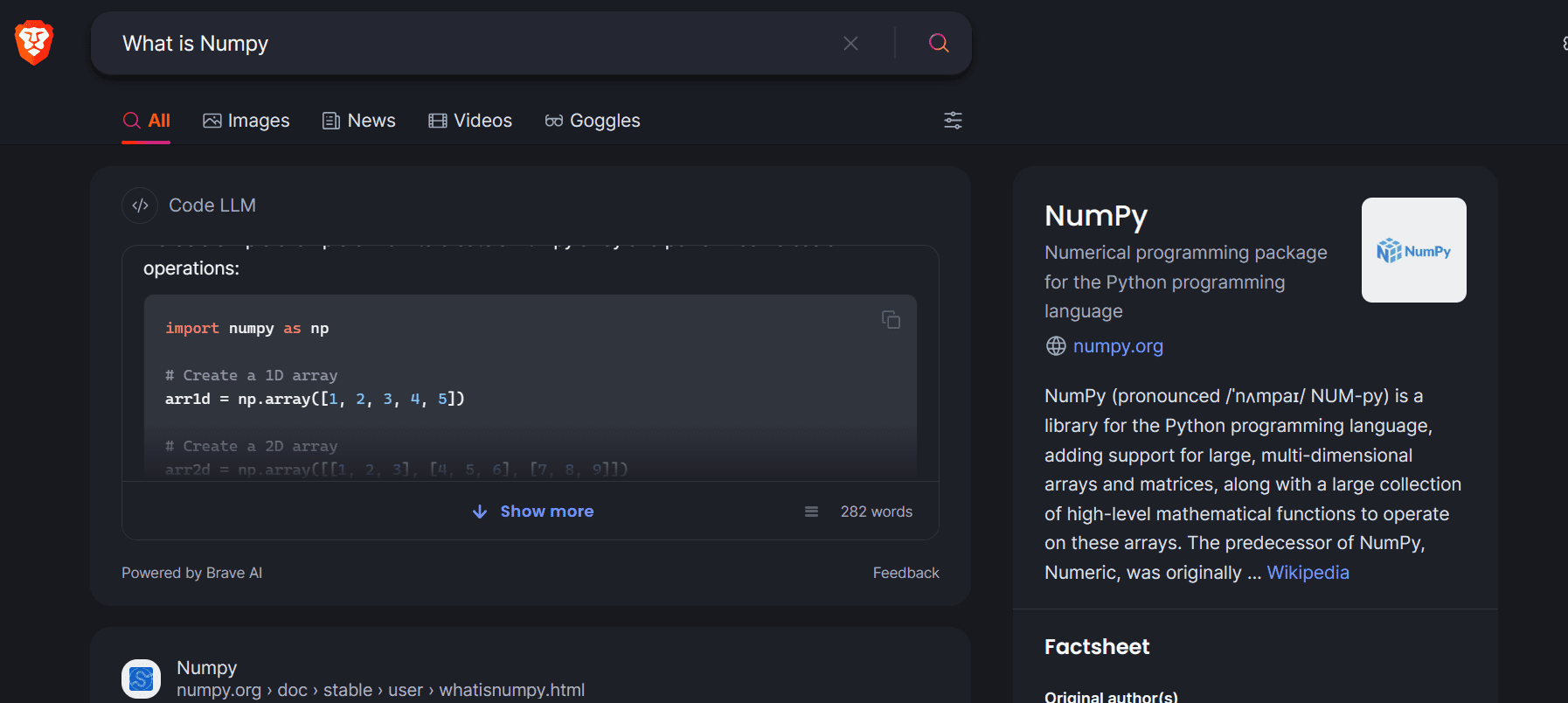
One notable feature is CodeLLM, an AI-powered tool that is specifically designed to assist with programming queries by providing high-quality search results. Additionally, the search engine comes with the summarizer feature, which uses artificial intelligence to generate concise and relevant summaries at the top of search result pages, providing users with quick and informative answers based on their queries.
Andi Search is not just another search engine. It uses advanced generative AI and language models to provide more than just links in response to user queries. Instead, it offers direct answers, summaries, and explanations in a conversational tone, making it feel like you are talking to an expert.
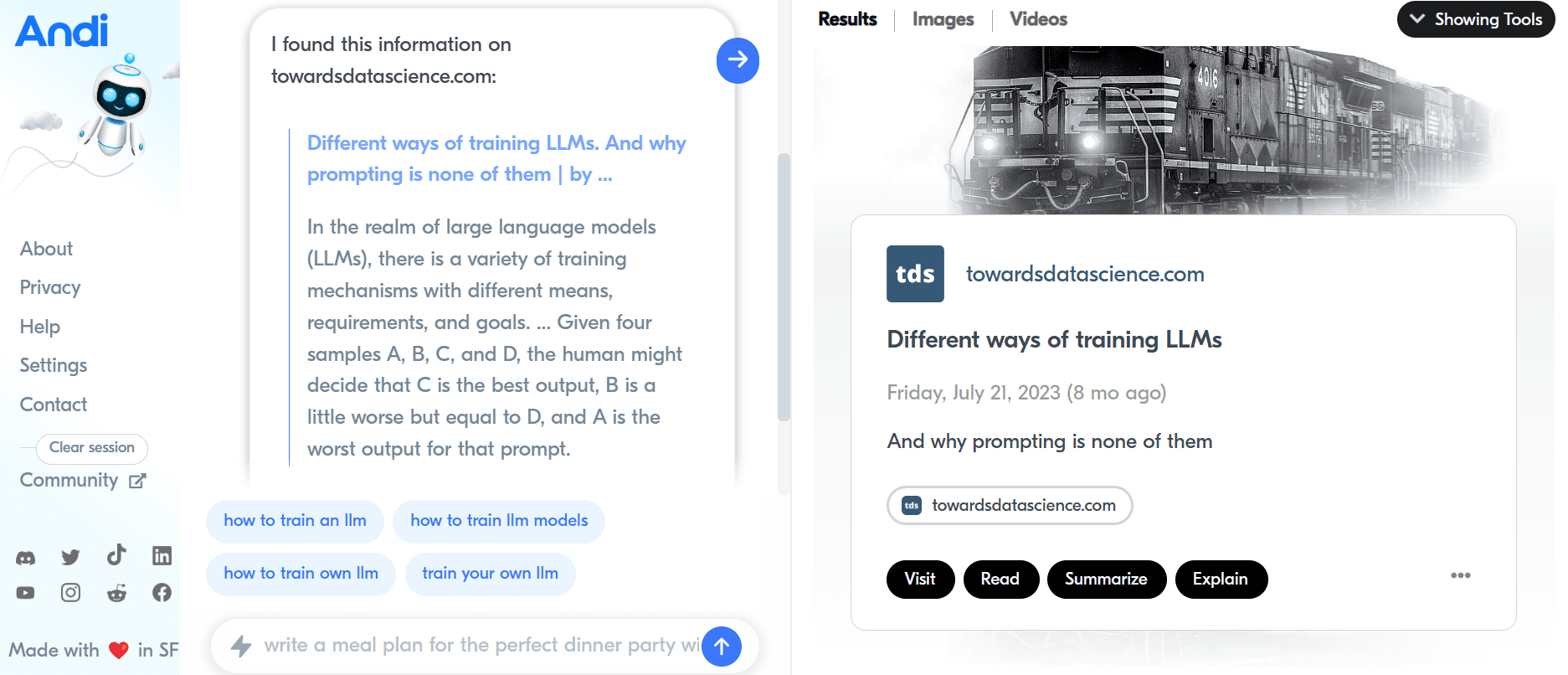
Andi Search provides a ChatGPT-style search experience and a workspace where you can explore topics in-depth. With the option to summarize articles and ask follow-up questions, Andi Search makes it much easier to understand complex topics quickly and efficiently.
If you’re looking for more privacy-focused alternatives, AI-based summarization, or a more visually enhanced search experience, there’s likely an AI search engine on this list that meets your needs.
In my opinion, using newly available AI-powered search engines can provide better results and save time and effort compared to Google, which I believe is becoming worse over time.
Abid Ali Awan (@1abidaliawan) is a certified data scientist professional who loves building machine learning models. Currently, he is focusing on content creation and writing technical blogs on machine learning and data science technologies. Abid holds a Master’s degree in technology management and a bachelor’s degree in telecommunication engineering. His vision is to build an AI product using a graph neural network for students struggling with mental illness.

